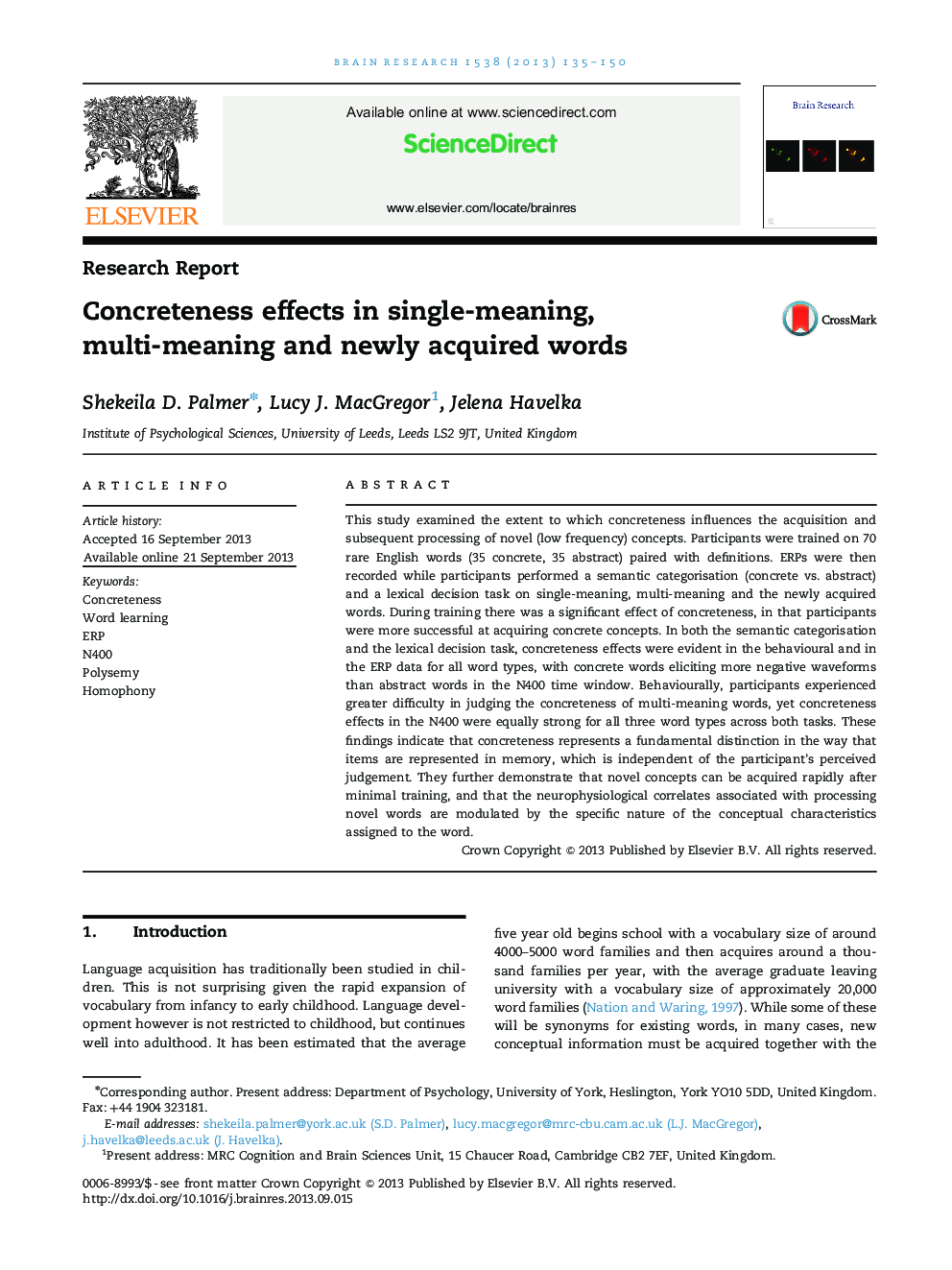| Article ID | Journal | Published Year | Pages | File Type |
|---|---|---|---|---|
| 6263690 | Brain Research | 2013 | 16 Pages |
This study examined the extent to which concreteness influences the acquisition and subsequent processing of novel (low frequency) concepts. Participants were trained on 70 rare English words (35 concrete, 35 abstract) paired with definitions. ERPs were then recorded while participants performed a semantic categorisation (concrete vs. abstract) and a lexical decision task on single-meaning, multi-meaning and the newly acquired words. During training there was a significant effect of concreteness, in that participants were more successful at acquiring concrete concepts. In both the semantic categorisation and the lexical decision task, concreteness effects were evident in the behavioural and in the ERP data for all word types, with concrete words eliciting more negative waveforms than abstract words in the N400 time window. Behaviourally, participants experienced greater difficulty in judging the concreteness of multi-meaning words, yet concreteness effects in the N400 were equally strong for all three word types across both tasks. These findings indicate that concreteness represents a fundamental distinction in the way that items are represented in memory, which is independent of the participant's perceived judgement. They further demonstrate that novel concepts can be acquired rapidly after minimal training, and that the neurophysiological correlates associated with processing novel words are modulated by the specific nature of the conceptual characteristics assigned to the word.
⢠Concreteness affects both the acquisition and subsequent processing of novel concepts.⢠The N400 distinguishes novel abstract concepts from novel concrete concepts.⢠These effects are comparable to those elicited by familiar single meaning words.⢠Concreteness effects elicited by multi-meaning words differ in topographic distribution.
